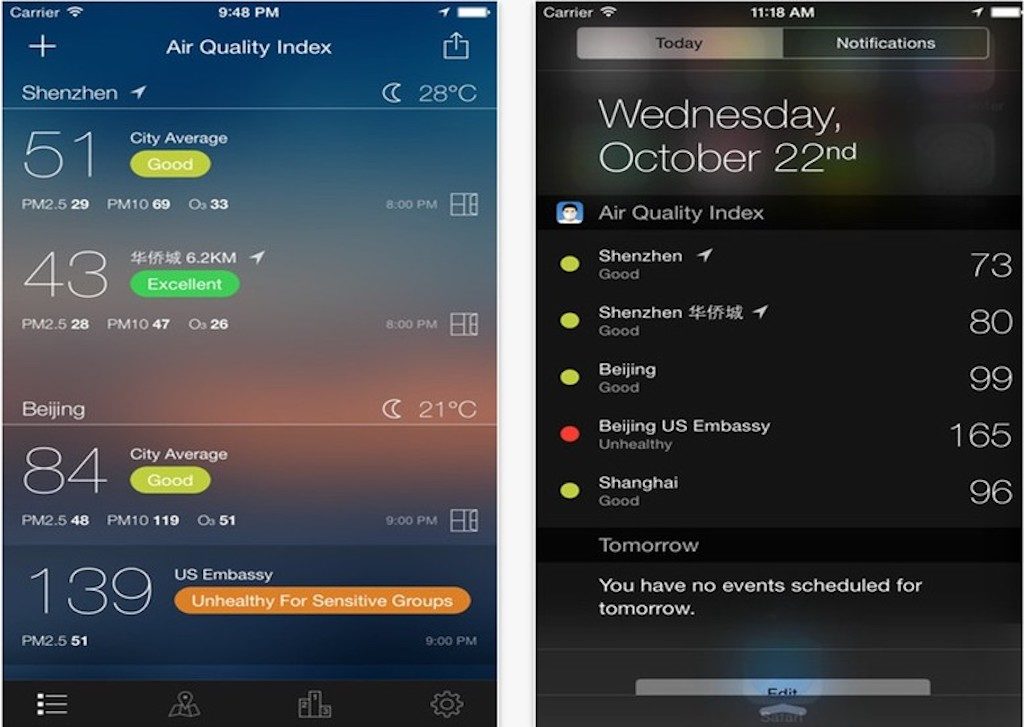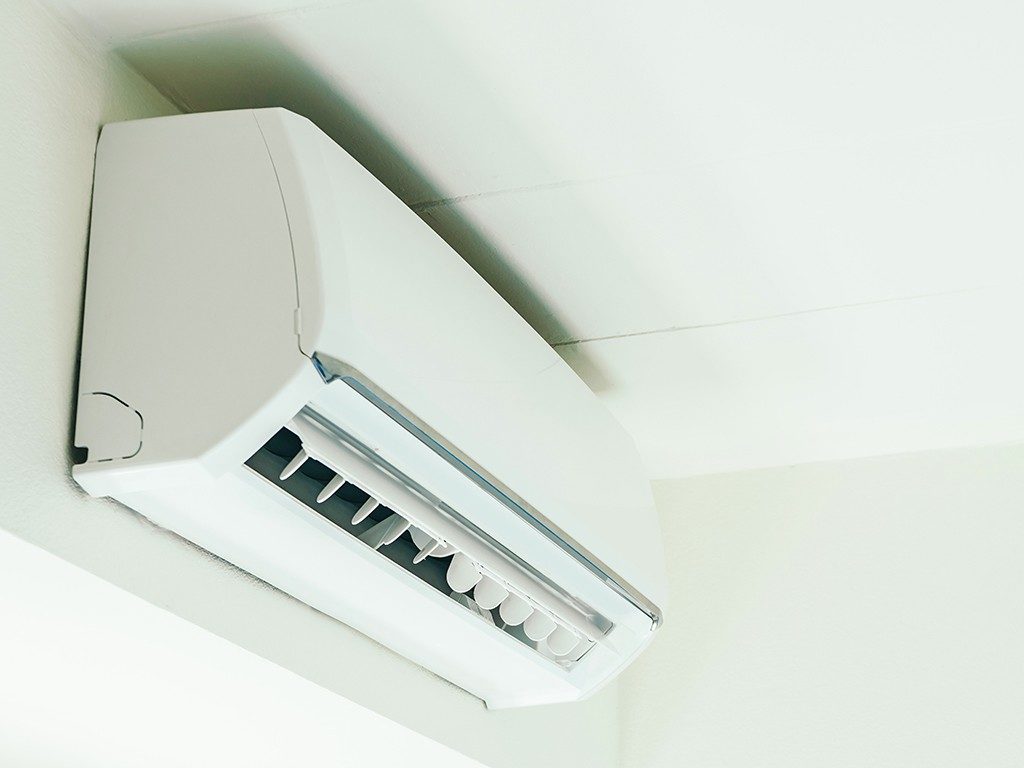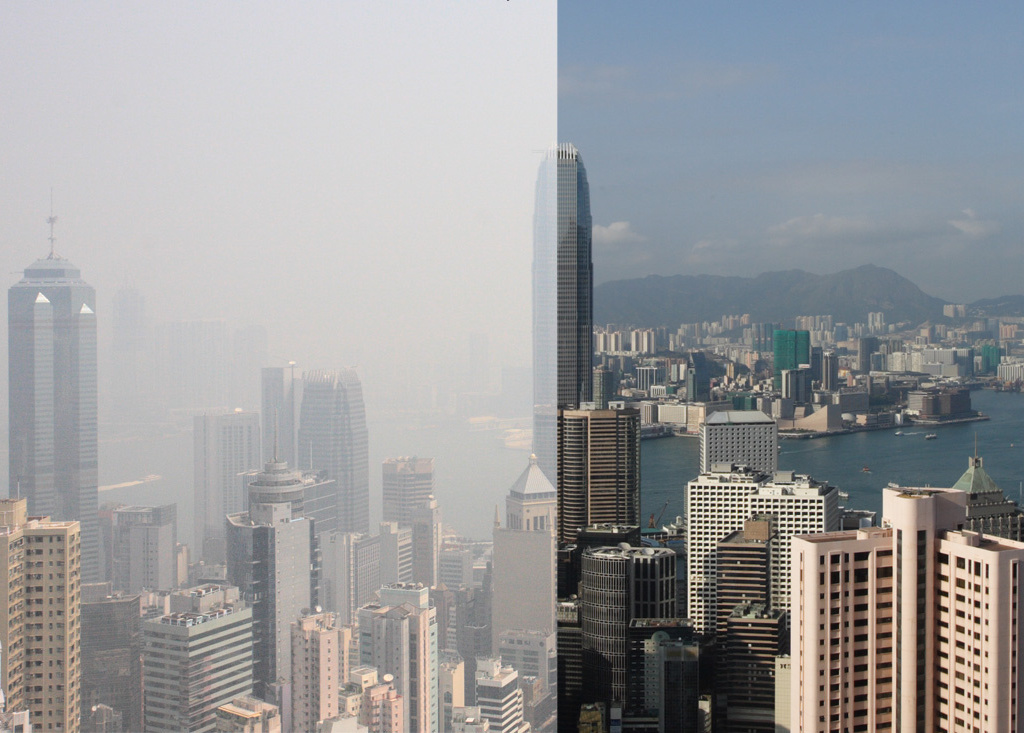4 Mins Read
In a city beset by gridlocked traffic, power plants, and factories in Guangdong and the Pearl River Delta, Hong Kong’s air pollution contributes a major breathing problem to its seven million plus citizens. Our air quality has become a serious environmental risk. According to the UN Environment Programme, over 90% of people across APAC are exposed to levels of questionable air quality that can pose a significant risk to their health.
While the Hong Kong government has implemented a five-year goal to firm up our city’s air quality, this objective still falls short of the standard global guidelines set by the World Health Organisation. In fact, it’s the worst it’s been since 2011. Simply put, the air we breathe is so bad that the city does not have the infrastructure to get us in good standing yet. So what are we to do? What can you do individually?
Your life depends on good air. Literally. Below, we put together a comprehensive guide on actions you can take to reduce Hong Kong’s nasty air pollution around you.

Check The Air Quality Index
Knowledge is power. Take initiative to provide a framework for air quality management and assessment around your neighborhood and workplace – that’s a good starting point to protect yourself and loved ones. Healthy Matters has a list of the six best apps in Hong Kong to check the air quality in the city.
When the index shows poor or unhealthy numbers, limit your time outside and try to stay indoors. Clean air is especially critical for children and the elderly. Respiratory problems like asthma and COPD can turn into serious health issues if your environment is full of air pollutants. From a personal standpoint, when I first moved here from Los Angeles (I am fully aware I come from the most polluted city in the nation, but maybe this can leave an impressionable analogy since I have firsthand experience of breathing smoggy air), my throat would burn after being out in the city for a short while. I remember my eyes would get so red and itchy on days the air pollutants were high. It taught me real quick to check the air quality like I would the weather daily and to navigate my time doing outdoor workouts or taking walks.

Optimize Your Surroundings
Bad air quality isn’t just outside – it also lurks indoors in your home, your kids’ schools, or office. While it might not be entirely possible to eliminate all of the allergens, there are ways to easily reduce your exposure to them.
• Practice Good Indoor Hygiene can decrease dust and dander. Vacuum carpets and area rugs once or twice a week with a HEPA filter to trap pollutants. Maintain your air conditioners at home to ensure it is circulating and filtering indoor air regularly. The point is to make sure your home is well ventilated.
• Invest in an Air Purifier: To effectively improve air quality, an indoor air purifier can be a good investment in your home and to your health. Read about the valid reasons to spend the money on one and the top brands available for purchase in the city. For a portable air purifier to bring with you or one that can attach to your baby’s stroller, consider Wynd, it’s the size of a water bottle, weighs less than a pound, and is mighty powerful!
• Diffuse Essential Oils can be a good way to purify the air at home. Scents like eucalyptus, oregano, thyme, peppermint, lavender and tea tree can be a refreshing and easy way to cleanse a small area like your apartment or work desk.

Work On Your Respiratory & Immune Health
It’s also important to consider the longterm health impacts from air pollution. Make sure your respiratory system and immune health is in top shape to keep the nasties at bay.
• Eat Probiotic-Rich, Fermented, Liver & Gut-Cleansing foods that can detoxify the body. That way – the good bacteria will fight the bad bacteria, your body will absorb nutrients more efficiently and keep your digestive system in balance. For a good cheat sheet on what to eat, here is a list of fridge foods that Hong Kong’s leading nutritionists can’t live – or poop – without 😉
• Exercise Regularly – it’s a huge part of detoxification. Moving the body where it can breathe, circulate, sweat so that the kidneys can effectively filter toxins is good for you. However, outside workouts are hindered by bad air conditions, so consider working out in the gym or head to a sauna on those bad air days.
• Increase Your Vitamin D Exposure: the hormone (that’s right, it’s not a vitamin) has been shown to ease children’s asthma cause by air pollution.
• Get ample Sleep:Studies have shown that people suffering from low sleep efficiency can be linked with air pollution in their homes so if you find yourself tossing and turning at night, or just not getting good quality sleep, see if an air purifier in your room can fix the problem.
Lead image courtesy of Tokyoahead at English Wikipedia, app image courtesy of Mobile World Capital, others courtesy of Pexels.



